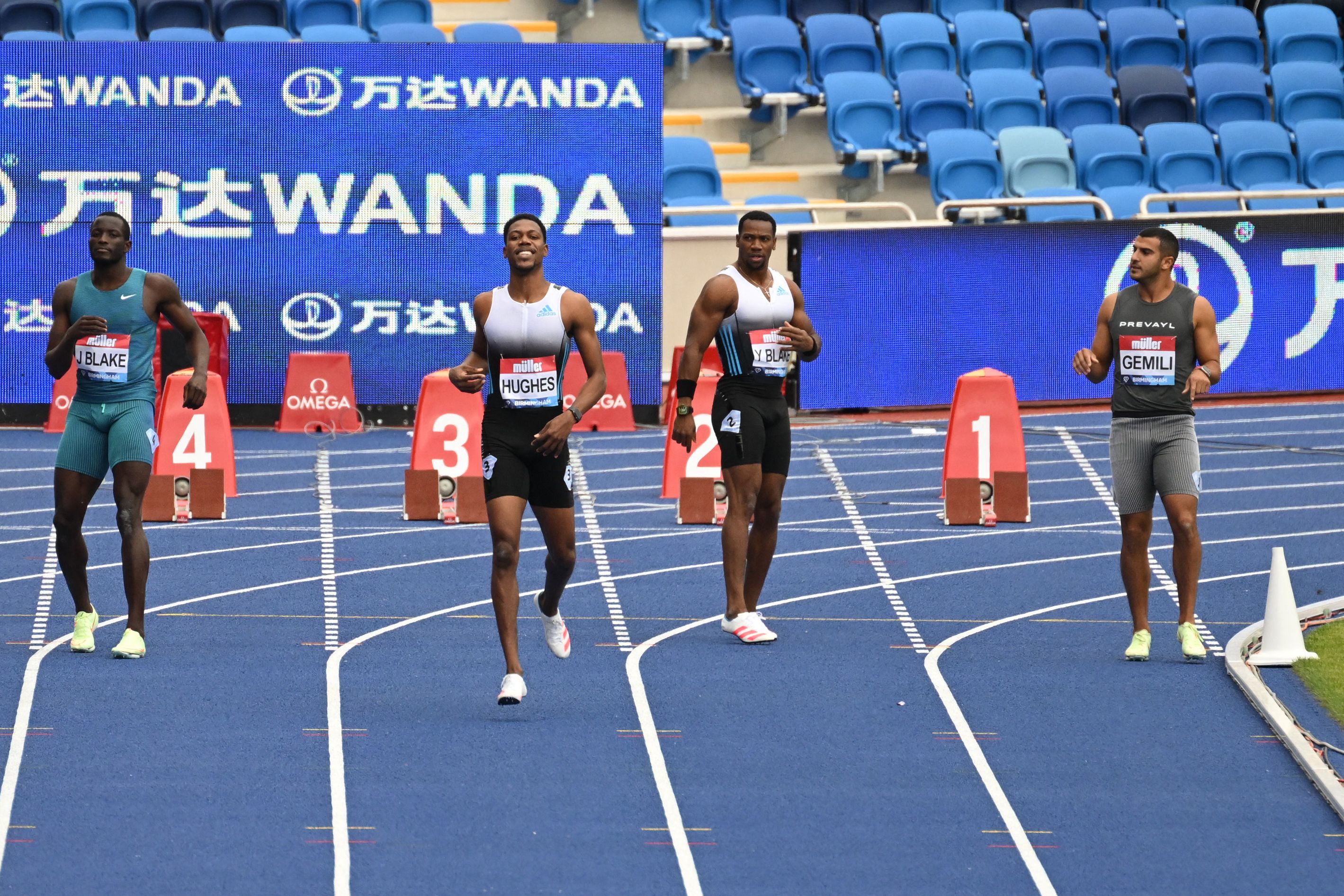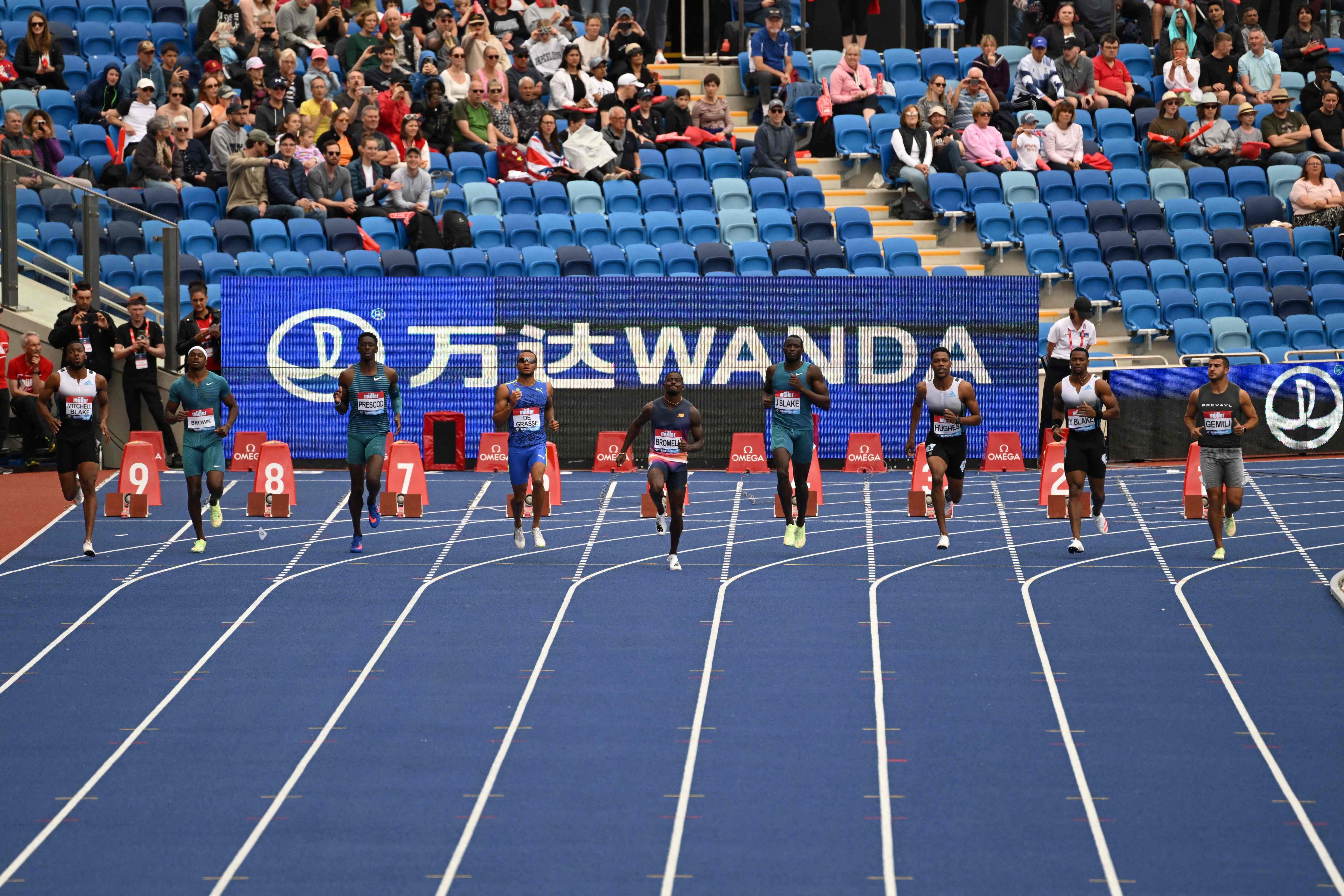Why it’s time for athletics to pull the trigger on its false start rule again
Trayvon Bromell and Zharnel Hughes were both disqualified from the men’s 100m at the Birmingham Diamond League after their first transgression

Your support helps us to tell the story
From reproductive rights to climate change to Big Tech, The Independent is on the ground when the story is developing. Whether it's investigating the financials of Elon Musk's pro-Trump PAC or producing our latest documentary, 'The A Word', which shines a light on the American women fighting for reproductive rights, we know how important it is to parse out the facts from the messaging.
At such a critical moment in US history, we need reporters on the ground. Your donation allows us to keep sending journalists to speak to both sides of the story.
The Independent is trusted by Americans across the entire political spectrum. And unlike many other quality news outlets, we choose not to lock Americans out of our reporting and analysis with paywalls. We believe quality journalism should be available to everyone, paid for by those who can afford it.
Your support makes all the difference.From a grimace to a grin, Trayvon Bromell was resigned to his fate at Saturday’s Diamond League: a false start in the men’s 100m prevented the American from racing in Birmingham.
A long-haul flight for a 10-second race and the obsolete one-and-done rule rendered his trip a total waste of time. Shock and disappointment quickly spread around the newly-opened Alexander Stadium, with Great Britain’s Zharnel Hughes, who suffered the same fate in Tokyo last year, quickly following Bromell back to the changing rooms.
It was a dignified reaction from Bromell, who conceded it was a “rookie mistake”, but quite simply, the rule needs to be changed.
The most notorious victim of the one-and-done rule was Usain Bolt, who was disqualified in Daegu at the 2011 World Championships.
But with the sport craving eyeballs more than ever before in an increasingly-saturated market, the punishment now outweighs the crime, at least outside of major championships.
“A Netflix show would be brilliant,” Dina Asher-Smith said last week on how to increase the sport’s popularity. “It would provide a really good insight to get to know what we are like. I would also like to have more events in the major cities, maybe get some more street races back. Make sure we have lots of fun, energetic, energised events. I think that should be the priority to engage Gen Z.”
It becomes increasingly more difficult to grow the sport though if the fans are merely an afterthought. Those who paid money and travelled great distances to see their favourite athletes surely deserve better. Fans would surely prefer some kind of reprieve, even if that places strain on the timetable and television schedule.
Some may argue that discipline and the skill of reacting to the gun are integral parts of the sport, which is true. But do we really need such severe repercussions at the Diamond League and anything outside of major championships?

Surely Bromell and Hughes could have run when there is no advancement from heats or a major title on the line – although athletics sometimes creates issues for itself when a meet has a domestic championships within a race.
The Diamond League awards athletes with one to eight points for placing anywhere from eighth to first across its 13 series meetings. Athletes finishing inside the top eight of the standings, for the 100m, will then advance to the final at the end of the season.
Therefore a happy compromise could be to deny Bromell the opportunity to earn points after a false start, or even deduct a percentage of his winnings, much like a boxer missing weight, and donate it to charity. The result does not even need to count, if the sport is truly afraid of athletes gaming the system. But let’s at least see the athletes run, especially when they are as special as Bromell, who might not perform in the UK again until next year.
Bromell is a big star and, Andre de Grasse aside, was the only gold medal candidate for the men’s 100m in Eugene this summer to travel to Birmingham. Marcell Jacobs, who now appears to have picked up an injury, Fred Kerley and Christian Coleman all skipped the meet to prepare for the Prefontaine Classic this weekend.
The 26-year-old’s disqualification should serve as a warning, too, with the women’s 100m quickly following on Saturday, which starred the face of the meet: Asher-Smith. Had Great Britain’s sprint queen, largely responsible for the interest surrounding the event, made a similar mistake, you suspect there would have been uproar.
Asher-Smith is right, a show similar to Drive to Survive would do wonders for the sport and we’ve seen the progress innovative events such as the “Night of the 10,000m PBs” have made. But first and foremost athletics must protect itself from shooting itself in the foot. It’s time to change the false start rule.
Join our commenting forum
Join thought-provoking conversations, follow other Independent readers and see their replies
Comments